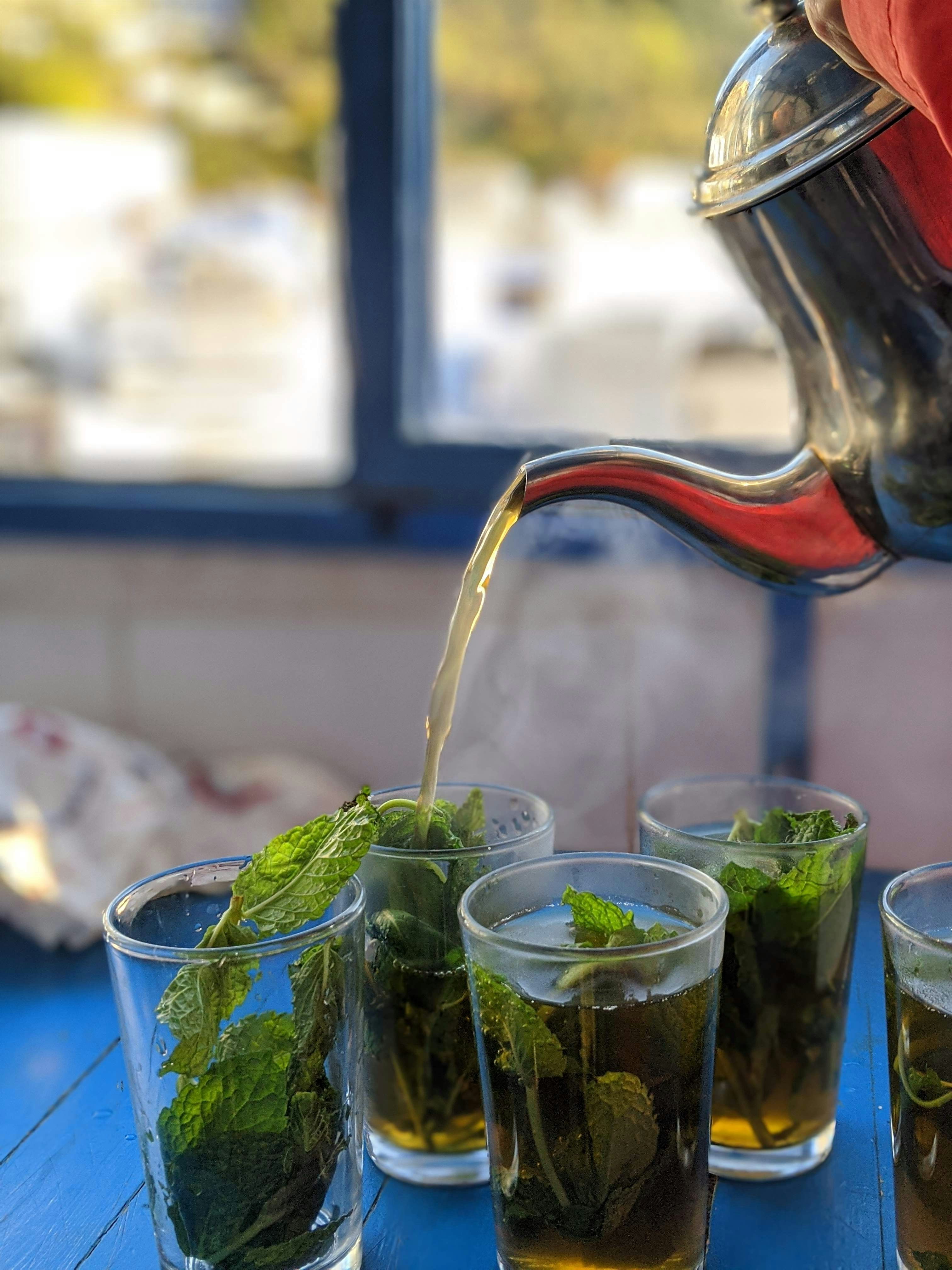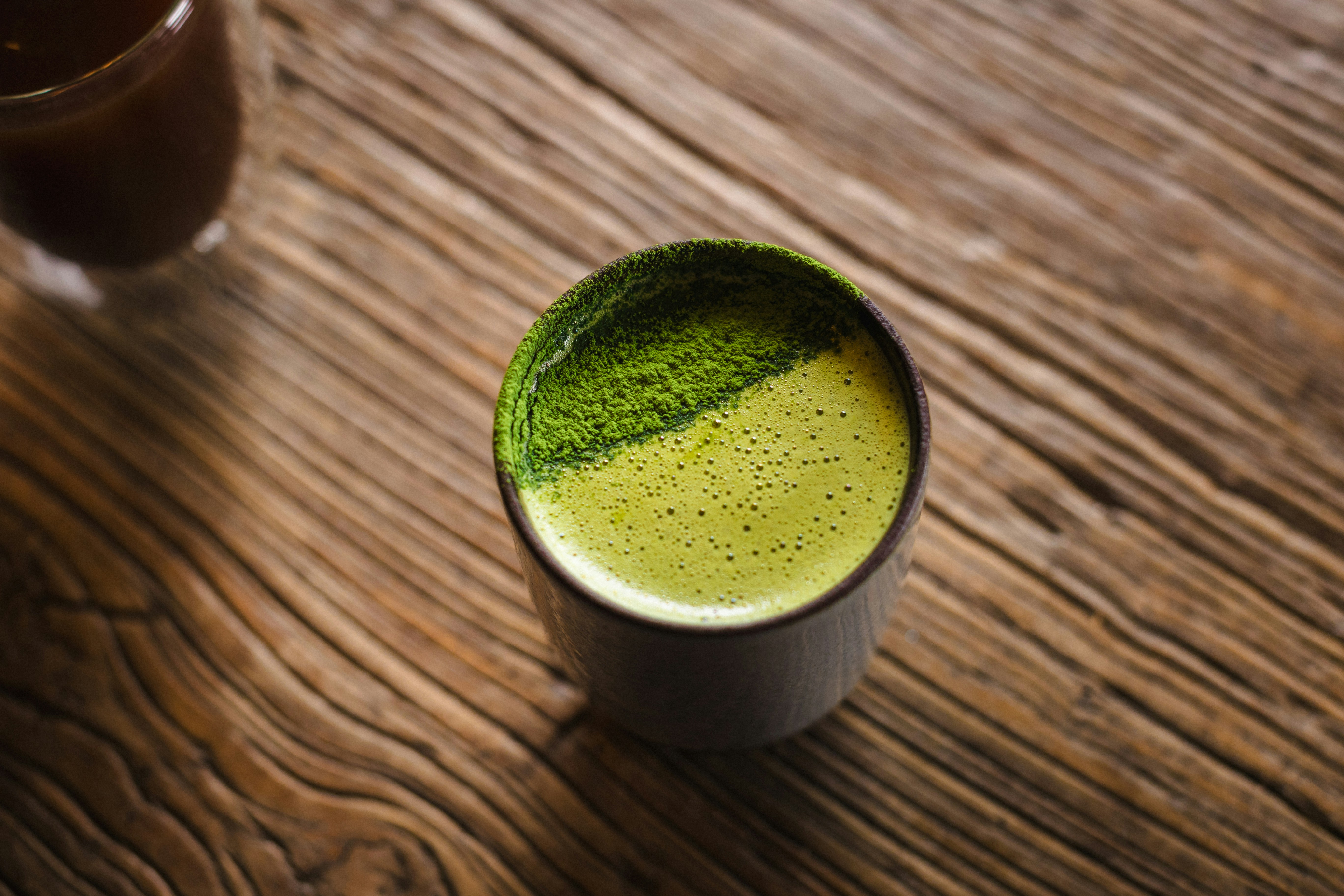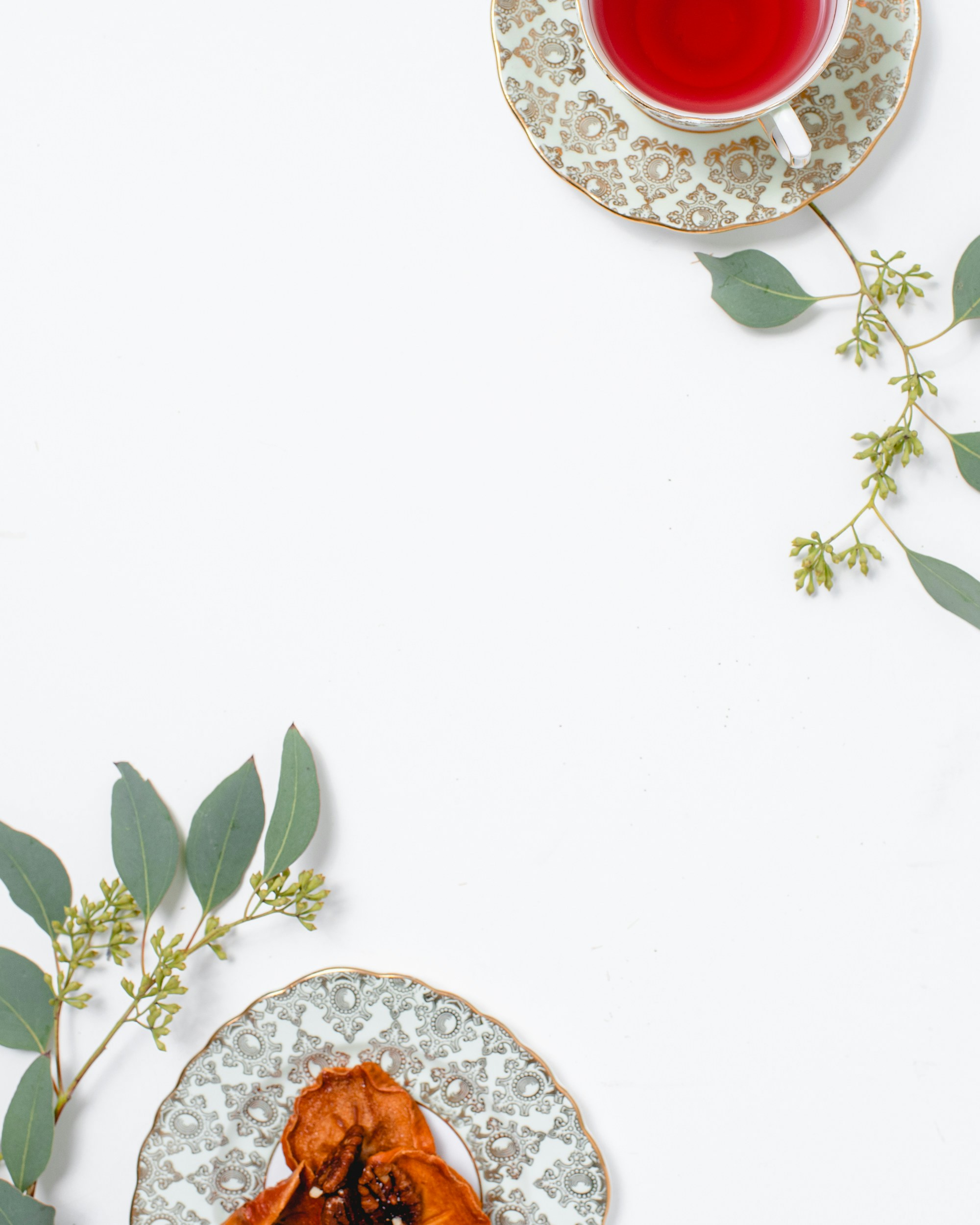The Warm Embrace of Tea
Throughout history, tea has transcended its role as a mere beverage, emerging as a cultural symbol deeply intertwined with the mind-body connection. The roots of tea drinking can be traced back to ancient civilizations, where its soothing properties were revered not only for relaxation but also for their ability to promote mental clarity and emotional well-being. The act of brewing and consuming tea forms a ritual that encourages mindfulness—a practice that fosters a deeper recognition of one’s thoughts and feelings.
The simple act of preparing tea invites individuals to slow down and engage in a moment of contemplation. As the water warms, releasing fragrant notes and rich flavors, one begins to experience an awakening of the senses. This sensory engagement can facilitate a meditative state, where the mind has the opportunity to reflect inwardly, thus fostering a profound connection between mental tranquility and physical presence.The inherent qualities of various tea types—ranging from calming herbal blends to invigorating green teas—provide diverse avenues for individuals to nurture their mind-body connection tailored to their personal needs.
Moreover, numerous studies have explored the physiological benefits of tea consumption, noting its potential to reduce stress and enhance cognitive functions. The high levels of antioxidants found in tea can combat oxidative stress, contributing to overall physical health, while the subtle caffeine content offers gentle stimulation without the jittery effects associated with coffee. Through these qualities, tea emerges as a natural elixir, promoting not only relaxation but also the vitality necessary for maintaining balance in today’s fast-paced world.
As we delve further into the remarkable benefits of nature’s brew, it becomes evident that tea serves as a conduit for personal well-being. This nurturing beverage encourages individuals to embrace life’s complexities with composure, enriching both the mind and body in harmonious unity.
The History of Tea: A Journey Through Cultures
Tea has a long-standing history that spans thousands of years and stretches across various cultures, each with its unique traditions and practices. Originating in China, it is believed that tea was first discovered in 2737 BCE by Emperor Shen Nong when a leaf accidentally fell into his boiling water. This serendipitous event set the stage for tea to become an integral part of Chinese culture, associated with both social interaction and profound philosophical concepts. The introduction of tea into Chinese society emphasized its significance not just as a beverage, but as a medium for mindfulness and communion.
As tea found its way beyond the borders of China, it transformed cultures worldwide. In Japan, for example, the tea ceremony, known as “chanoyu,” developed into an art form emphasizing harmony, respect, purity, and tranquility. The Japanese tea ceremony reflects deep spiritual values and is carefully performed, providing a moment of calm and a celebration of beauty in simplicity. This intricate ritual is a perfect illustration of how tea can serve as a bridge between mindfulness and social connection, creating shared experiences among participants.
Meanwhile, in Britain, the ritual of afternoon tea emerged in the 19th century, ushered in by Anna Maria Russell, the Duchess of Bedford. This practice quickly became a cultural staple, blending social interaction with a leisurely afternoon break. Afternoon tea evolved into an elaborate affair featuring an array of snacks and, of course, fragrant brewed tea. It signifies not just a meal but an opportunity to socialize and build connections within the community, illustrating how tea enhances social ties across different cultures.
Overall, the journey of tea through various cultures is woven with threads of social significance, spirituality, and health practices. From the contemplative tea ceremonies of Japan to the delightful afternoon tea traditions in Britain, tea profoundly influences our shared human experience. Reflecting on these rich histories can inspire readers to appreciate their personal tea rituals and deepen their understanding of this remarkable beverage.
Tea and Mindfulness: A Path to Presence
The ritual of tea drinking often transcends mere consumption; it becomes a deeply engaging experience that fosters mindfulness. By taking time to brew and savor tea, individuals can cultivate a moment of silence and reflection amidst their chaotic environments. This process encourages a heightened awareness of the present, promoting not only relaxation but also a deeper connection to oneself. Brewing tea involves a series of intentional actions: selecting the right leaves, measuring the water temperature, and steeping for an optimal duration. Each step demands focus, making it an excellent gateway towards mindfulness.
For instance, the act of preparing a cup of tea can serve as a meditative practice in itself. As one pours hot water over the leaves, the swirling colors and the visually appealing infusion invites contemplation. This simple yet profound experience can shift attention away from daily stressors, anchoring the mind in the current moment. The sensory experience of inhaling the rich aroma or observing the delicate dance of steam rising can draw the individual deeper into a state of presence.
Anecdotal evidence supports the benefits of this practice. Many tea enthusiasts report that dedicating time each day to drink tea helps them break free from the whirlwind of modern life. By engaging with tea mindfully, they experience a reduction in anxiety levels and a greater sense of peace. Moreover, as the warmth of the cup envelops their hands and the first sip touches their lips, individuals often reflect on their thoughts and feelings more clearly, facilitating a connection with their emotional state. Thus, tea drinking, far beyond being a simple pleasure, becomes a pathway to mindfulness, bridging the gap between mind and body.
Health Benefits of Tea: Nurturing Body and Mind
Tea has been revered for centuries not only for its rich flavors but also for its remarkable health benefits. Extensive research has demonstrated that tea consumption can significantly contribute to both physical and mental well-being. Various types of tea, including green, black, white, and herbal, possess unique properties attributed to their bioactive compounds, such as polyphenols and catechins, known for their antioxidant effects.
One of the most compelling advantages of tea is its role in stress relief. The amino acid L-theanine, found predominantly in green tea, has been studied for its calming effects on the brain. This compound promotes relaxation without drowsiness, making it easier for individuals to manage their stress levels. In a fast-paced world, integrating tea into one’s routine can be a simple yet effective strategy to enhance mental tranquility.
Furthermore, tea has shown promise in reducing anxiety. The act of brewing and consuming tea itself can serve as a mindful ritual, encouraging individuals to slow down and savor the moment. Research indicates that regular tea drinkers may experience lower instances of anxiety-related symptoms. The psychological comfort derived from holding a warm cup can yield significant improvements in mood and emotional stability.
Improved cognitive function is another notable benefit associated with tea. Studies suggest that the consumption of tea can enhance memory, attention, and overall mental clarity. The caffeine content in tea, albeit lower than that found in coffee, combined with L-theanine, offers a balanced stimulant effect that promotes alertness without the jittery side effects often experienced with coffee.
While tea can support well-being through stress relief, anxiety reduction, and cognitive enhancement, it is vital to remember that it is not a replacement for professional medical advice or treatment. Incorporating tea into a balanced lifestyle, however, can be a delightful and beneficial complement to one’s overall health journey.
Spiritual Applications: Tea as a Tool for Reflection
Tea has been revered across cultures not merely as a beverage, but as a spiritual catalyst that nurtures the mind and soul. In various traditions, the act of sharing and consuming tea acts as a sacred ritual, inviting individuals to engage with their inner selves while fostering a sense of community and connection with others. For instance, in Chinese culture, Gongfu tea ceremonies elevate the tea drinking experience to an art form, where every movement and gesture reflects intention and mindfulness. This purposeful interaction encourages participants to immerse themselves wholly in the moment, cultivating a heightened sense of awareness.
In Japan, the way of tea, or Chanoyu, exemplifies a deeply spiritual practice centered on harmony, respect, purity, and tranquility. Participants engage in a meticulously choreographed ritual that transforms tea preparation into a meditative experience, allowing time for reflection and internal alignment. The simple act of preparing and drinking tea thus becomes an opportunity for introspection and spiritual awakening. Many practitioners have reported transformative experiences during such ceremonies, revealing profound insights about their personal journeys.
Similarly, in various Indigenous cultures, tea drinking serves as a spiritual bridge to nature. Herbal teas made from local plants are often prepared with great reverence, coupled with intentions that honor the earth’s gifts. Such rituals promote a deeper connection to self and surroundings, inviting individuals to slow down and reflect on their place within the broader ecosystem. For countless people, these tea rituals enhance their capacity for reflection, leading to profound personal revelations.
Through these rich traditions, tea emerges as more than just a drink; it becomes a tool for spiritual exploration. Whether one seeks a moment of solace or the courage to confront life’s challenges, the act of sharing and sipping tea fosters a sacred space for reflection, personal growth, and spiritual enlightenment.
Cultural Rituals: Tea in Community and Connection
Tea has long served as more than just a beverage; it is a medium through which communities bond, converse, and cultivate emotional connections. Across various cultures, the act of sharing a cup of tea transcends mere consumption, transforming into a ritual that fosters dialogue and intimacy among individuals. For instance, in the British tradition, afternoon tea presents an opportunity for friends and family to gather, encouraging light-hearted conversations while indulging in delicious treats. This cultural practice epitomizes how tea can cultivate social bonding and enhance emotional well-being.
In many Asian cultures, the ritual of tea drinking is steeped in symbolism and tradition. The Japanese tea ceremony, known as ‘Chanoyu,’ exemplifies this, as it emphasizes mindfulness and respect, making each interaction deeply meaningful. During these ceremonies, participants engage in a quiet reflection, promoting a sense of peace and connection with one another. Such practices not only highlight the significance of tea in social settings but also reveal its capacity to facilitate emotional wellness through shared experiences and mindfulness.
Additionally, in Middle Eastern cultures, tea is often served as a gesture of hospitality. The communal preparation and serving of tea creates an inviting atmosphere, fostering dialogue and nurturing relationships. Sharing tea becomes a social event, marking celebrations or providing solace during difficult times. This communal aspect of tea drinking underscores its ability to bridge gaps between people, facilitating connections regardless of background or circumstance. Thus, tea acts as a catalyst for building community, reinforcing the idea that nature’s brew is integral to the social fabric of diverse cultures.
Choosing the Right Tea for Your Mind-Body Journey
When embarking on a mind-body journey, selecting the right tea can play a pivotal role in enhancing your physical and mental well-being. Different types of teas offer various benefits, and understanding these can help you make informed choices that align with your personal goals. Whether you seek relaxation, energy, or mental clarity, there is a tea designed to meet your needs.
Herbal teas, often caffeine-free, are known for their calming properties. Varieties such as chamomile and lavender can help to alleviate stress and promote restful sleep, making them ideal for evening consumption. These naturally soothing blends can assist in relaxation, creating a serene environment essential for unwinding after a long day. Incorporating herbal tea into your nighttime routine can significantly enhance your overall mental clarity and well-being.
Green tea, rich in antioxidants and moderate caffeine content, is celebrated for its energizing effects. This tea can provide a gentle boost without the jitters commonly associated with coffee. The presence of L-theanine, an amino acid that promotes relaxation, allows for heightened focus and alertness. For those looking to enhance their concentration during work or study sessions, green tea may serve as the perfect companion.
Black tea, with its robust flavor and higher caffeine levels, acts as a natural stimulant, making it suitable for those needing a substantial energy boost. Its polyphenols can support cognitive function and improve mental clarity, potentially aiding in productivity. Oolong tea, on the other hand, strikes a balance between green and black tea, offering both energy and relaxation benefits. This variety contains compounds that may assist in weight management while also providing a steady source of energy.
Ultimately, the key to choosing the right tea lies in understanding your personal objectives. By aligning your tea selection with your desired mind-body outcomes, you can fully harness the remarkable benefits that nature’s brew has to offer. Whatever your goals may be, there is a tea out there that can support your journey towards holistic well-being.
Personal Stories: Transformations Through Tea
Tea, a humble beverage steeped in history, has transcended its status as a mere drink to become a source of profound personal transformation for many individuals. Stories abound of how a simple cup of tea has served as a catalyst for change, allowing people to reclaim their mental and physical well-being. One such account comes from Emma, a busy healthcare professional who found herself overwhelmed by the stresses of her demanding job. Seeking solace, she turned to herbal tea, particularly chamomile and lavender blends, known for their calming properties. Emma recounts how the ritual of brewing tea became a sacred moment in her day, providing her with a pause from the relentless pace of her responsibilities. With each sip, she felt her anxieties dissolve, ultimately allowing her to reconnect with her own mindfulness and presence in the moment.
Another touching story comes from David, who discovered the spiritual benefits of tea during a period of personal reflection. Searching for a way to enhance his meditation practice, he incorporated matcha tea into his routine. Its vibrant green color and rich antioxidants symbolized renewal for him. With each contemplative sip, David felt more centered and attuned to his inner self, allowing deeper introspection. This integration transformed his meditation practice, fostering a greater appreciation for the stillness of the mind, a connection he had previously struggled to attain.
Then there is Sarah, who credits her journey to physical health improvements to her daily green tea consumption. After being diagnosed with heightened cholesterol levels, she sought natural methods to support her body. The research surrounding green tea’s benefits drew her interest, and she began experimenting with various types. Over time, not only did her health markers improve, but she also found increased energy and vitality, igniting a passion for fitness she never thought possible. These diverse narratives exemplify the multifaceted role tea plays in fostering transformative experiences that enrich both mind and body.
Conclusion: A Call to Sip and Reflect
Throughout this exploration of tea and its profound influence on the mind-body connection, it has become increasingly clear that this ancient beverage transcends mere hydration. Tea serves as a bridge, fostering not only physical well-being but also mental clarity and emotional balance. By engaging with tea, individuals can cultivate moments of mindfulness, inviting tranquility into their busy lives. The act of steeping leaves, inhaling fragrant aromas, and savoring warm sips can transform a mundane routine into a rich ritual of self-care.
As we have discussed, various types of tea each bring unique benefits, from enhancing focus to promoting relaxation. For instance, green tea, rich in antioxidants, can aid in mental sharpness, while chamomile offers soothing properties beneficial for unwinding after a long day. Each cup becomes an opportunity to reflect, appreciate, and reconnect with oneself, reminding us of the essential role that nature plays in nurturing our well-being.
Incorporating tea into daily life does not require elaborate rituals or dedicated time; even a brief pause with a warm cup can be profoundly grounding. By choosing to sip tea mindfully, we embrace a moment of stillness and reflection amidst life’s challenges. This simple yet powerful act encourages a deeper connection to both the natural world and the self, promoting overall health and vitality.
Therefore, let us acknowledge the importance of tea as more than a beverage but as a catalyst for holistic well-being. As we cultivate this mind-body connection through each sip, we not only enhance our lives but also honor the wisdom of nature. So, let us raise our cups to the many benefits tea offers and commit to integrating this mindful practice into our everyday routines.








Leave a Reply